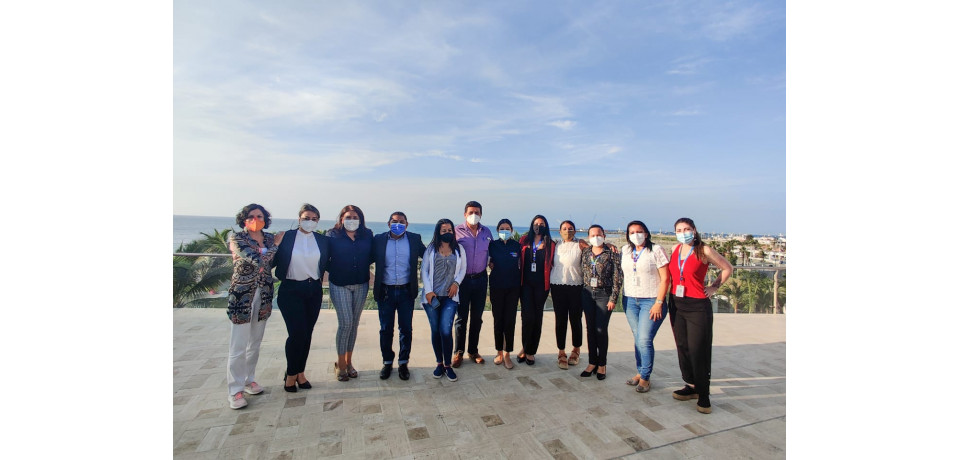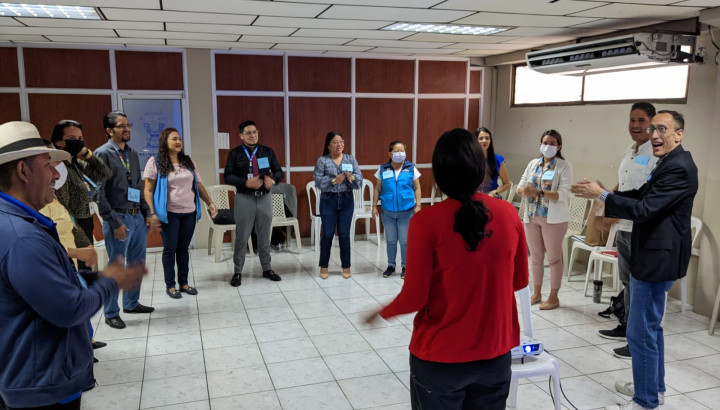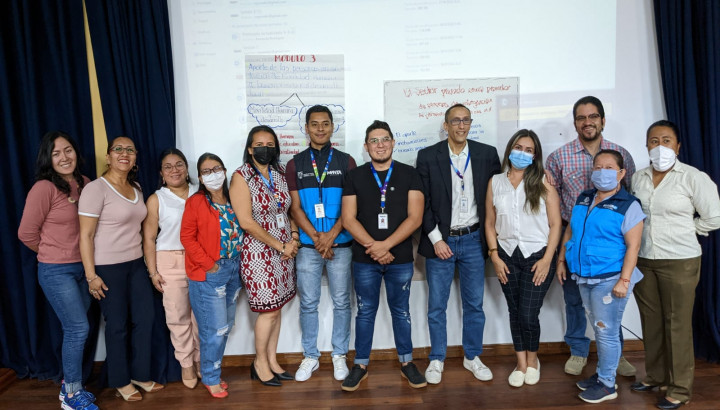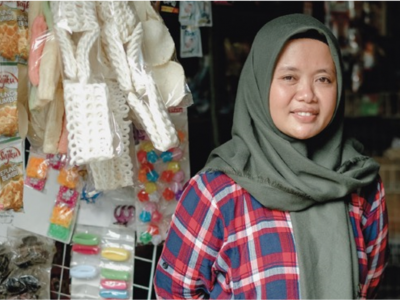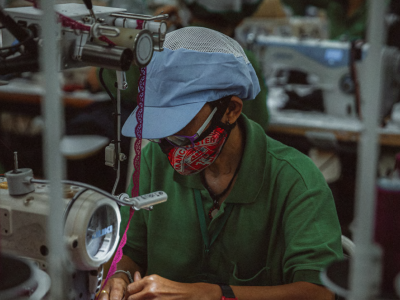Socio-economic integration in Manta
Adriana Garces, IOM Ecuador, agarces@iom.int
Cristina Burgos, UNDP Ecuador, cristina.burgos@undp.org
Related Sustainable Development Goals and Global Compact for Migration Objectives
Summary
Manta, which was the city hardest hit by the 2016 earthquake in Ecuador, is still recovering from the socio-economic impact of the natural catastrophe while also continuing to welcome people on the move, especially Venezuelan migrants and Ecuadorian returnees. As part of the IOM-UNDP Global Programme on Making Migration Work for Sustainable Development, this project will support training programmes, with a focus on the promotion of associative entrepreneurship and employment opportunities, and endeavor to reduce xenophobia and discrimination for enhanced cooperation between all community members.
Key objective
The main objective of the project is to foster the community’s long-lasting socioeconomic development through the generation of sustainable and formal livelihoods opportunities for the citizens of Manta and the promotion of social and economic inclusion of community members in human mobility conditions. The project will focus on an associative and cooperative component, which aims at building social capital and trust networks, while multiplying the programs´ benefits to more recipients.
Main activities
- Provide necessary technical assistance, technological equipment and infrastructure modifications for the multi-use centre, in order to assure beneficiaries’ continued and sustainable access to the programs and to facilitate the community’s access to a free space where they can use computers and printers, and have access to a professional photography camera and editing programme to promote their products.
- Develop a module on associative finances and entrepreneurship, which encompasses all necessary tools for building and maintaining an associative popular and solidary economy business; foster its use within the capacity-building programs and its distribution to beneficiaries by the municipality, universities and TVETs.
- Generate and update previously designed training modules, in order to address entrepreneurship, integration, biosecurity measures and tools aimed at navigating post-COVID-19 realities and rising needs.
- Strengthen instructors’ technical capabilities to provide proper training in accordance to the updated and newly created training modules.
- Create an online marketplace managed and constantly updated by the municipality, where social and associative entrepreneurs and small businesses can sell their products without intermediaries.
- Create an online job bank where beneficiaries and other members of the community (including migrants, refugees and returnees) can be connected with private and public job positions.
- In collaboration with the municipality: Develop an award methodology to be used as recognition for private businesses which incur in good recruitment practices (hiring people in human mobility and other priority groups) & Establish alliances with local cooperatives to promote and facilitate access lines of credit for beneficiaries’ associative businesses.
- In collaboration with the private sector: Support the development and dissemination of orientation materials for workers and employers that include labour market information, migratory categories and requirements, recruitment costs, opportunities and risks & create awareness raising material and programs on human mobility topics.
- Utilize a "training of trainers" methodology to train local authorities and technicians in Manta, Santo Domingo and Portoviejo in order to better build the capacities and knowledge of local governments in terms of inclusive contracting.
- Train migrants and non-migrant community members on employability topics, aiming to strengthen their skills to search for jobs and access employment opportunities.
- In coordination with the municipality and the companies that have been trained in the program: organize a job fair, where people in situations of human mobility and the host community will have the opportunity to interact with the companies, know about the vacancies and apply for those opportunities.
Key successes or innovative factors, good practices and lessons learned (if available)
-
A total of 79 people from 40 companies located in Santo Domingo and Manta were trained on inclusive recruitment processes based on the national regulatory framework and international standards for socio-economic inclusion of people on the move and host communities.
-
More than 30 authorities and technicians from the municipalities of Manta, Santo Domingo and Portoviejo were trained through the "training of trainers" course on inclusive contracting topics. Local authorities can now act as trainers themselves and provide support for private sector actors who want to learn how to have more inclusive contracting and hiring processes. This methodology, whereby the government is empowered to act as experts that other local actors such as businesses can consult, ensures the sustainability of this initiative.
-
More than 50 people in a situation of human mobility located in Manta and Santo Domingo have been trained in employability topics, which enhanced the their job searching skills and competencies, and increased the possibilities of accessing decent jobs for them.
Read the case study on Manta's excellent example of putting the humanitarian-peace-development nexus into practice to empower migrants and displaced people (English and Spanish).
Beneficiaries
Local community members, including all categories of migrants, focusing on vulnerable groups and municipal multi-use center, TVET schools and Universities in Manta, local small businesses
